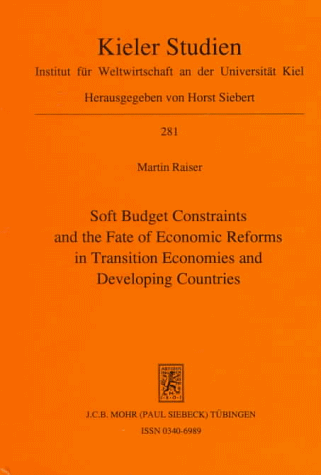For over a decade, a large number of governments have embarked on economic reforms to strengthen the competitiveness of their countries in the world market and improve the standards of living of their populations. By far the most extensive reforms, both in depth and scope, have occurred since the late 1980s in the former communist economies of Central and Eastern Europe and East Asia. Despite vast differences in initial conditions and reform design, Martin Raiser argues that a central ingredient of the success of these reforms must be the hardening of the budget constraint for domestic producers. To verify this hypothesis, Raiser develops an analytical framework that links the concept of the soft budget constraint to issues of economic reform in developing countries, and examines indicators of the degree of budget softness with particular emphasis on the institutional deficiencies that may undermine the credibility of macroeconomic stabilization and the effectiveness of price signals.In his empirical analysis, Raiser relates the indicators of budget softness to the inflation and growth records of thirty-one developing countries. The cases of Poland and China further illuminate his theory by pointing toward the institutional arrangements that may hinder the effective hardening of budget constraints in transition economies. Finally, Raiser analyzes enterprise level data for China to verify the link between budget softness and technical and allocative inefficiency.Soft Budget Constraints will be of notable interest to those scholars and students of economics specializing in development and transition economics.
- ISBN10 3161467086
- ISBN13 9783161467080
- Publish Date 1 July 1997
- Publish Status Unknown
- Publish Country US
- Imprint The University of Michigan Press
- Format Hardcover
- Pages 225
- Language English
